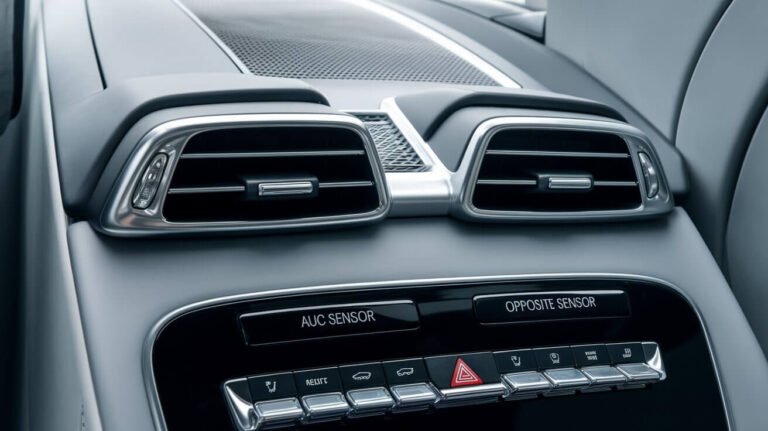
If you’re considering buying a BMW, one of the biggest questions on your mind is likely “How long do BMW vehicles last?” BMWs are known for their luxury, performance, and engineering excellence, but understanding their potential longevity is crucial before making such a significant investment. In this comprehensive guide, we’ll dive deep into the factors that influence a BMW’s lifespan, explore expert insights on their reliability, and provide tips to help you maximize the life of your BMW.
The short answer is that with proper care and maintenance, many BMW models can last for an impressive 200,000 to 250,000 miles or even longer. However, there are several variables that can affect a BMW’s longevity, which we’ll cover in detail throughout this post.
Factors That Influence a BMW’s Lifespan
The lifespan of a BMW can vary depending on several key factors:
Proper Maintenance and Servicing
Like any vehicle, proper maintenance is essential for ensuring a BMW’s longevity. Adhering to the recommended service schedule, using genuine BMW parts, and addressing any issues promptly can go a long way in extending your BMW’s life. Neglecting routine maintenance can lead to premature wear and tear, potentially resulting in costly repairs down the line.
Usage and Driving Conditions
How you drive and the conditions you subject your BMW to can significantly impact its lifespan. If you frequently engage in aggressive driving, subject your BMW to harsh environments (extreme temperatures, rough terrain, etc.), or rack up miles quickly, you may see a shorter overall lifespan compared to someone who drives more conservatively and under more favorable conditions.
BMW Model and Year
While BMWs are generally known for their reliability, some models and years may be more prone to certain issues than others. Staying informed about common problems and addressing them promptly can help minimize their impact on your BMW’s longevity.
The Average BMW Lifespan in Miles
According to various studies and expert opinions, BMWs can last an impressive 200,000 to 250,000 miles with proper care and maintenance. In fact, some owners have reported their BMWs running well over 300,000 miles, which is a testament to the brand’s engineering and build quality.
To put this into perspective, if you drive the national average of 13,500 miles per year, a BMW lasting 200,000 miles could potentially serve you for around 15 years. This longevity makes BMWs a wise investment for those seeking a luxury vehicle that can provide years of reliable service.
The Average BMW Lifespan in Years
While mileage is a common metric for measuring a vehicle’s lifespan, many drivers also consider the number of years a car can remain on the road. According to BMW and various automotive experts, with proper care, you can expect to drive your BMW for 10 to 15 years.
However, it’s important to note that this estimate is based on average annual mileage. If you drive significantly more or less than the national average, your BMW’s lifespan in years may vary accordingly.
There are numerous examples of BMW owners who have kept their vehicles running for well over a decade, with some even hitting the 20-year mark or beyond. These cases serve as a testament to the brand’s reputation for longevity and the dedication of BMW enthusiasts in maintaining their vehicles.
Why BMWs Are Considered Reliable Luxury Vehicles
BMWs have earned a reputation for being among the most reliable luxury vehicles on the market. This is due in part to the brand’s meticulous craftsmanship, precision engineering, and adherence to stringent manufacturing standards.
Several independent studies and expert assessments have consistently ranked BMW near the top for reliability and dependability:
- Consumer Reports: In a 2018 reliability study, BMW ranked higher than other luxury brands like Mercedes-Benz, Acura, Porsche, and Lincoln, demonstrating its ability to rack up high mileage with minimal mechanical issues.
- J.D. Power: BMW also ranked above average in a 2019 J.D. Power study, which recorded how often mechanical problems were experienced by owners of 3-year-old vehicles over a 12-month period.
- iSeeCars: This automotive research firm ranked the BMW M6 among the top 10 longest-lasting sports cars, with some models reported as still running after 200,000 miles.
These accolades from respected industry experts highlight BMW’s commitment to building vehicles that can withstand the test of time, even in the demanding luxury segment.
Best BMW Models for Longevity
While BMWs are generally known for their reliability, some models have gained particular praise for their impressive longevity:
- BMW 2 Series: In the J.D. Power dependability study mentioned earlier, the BMW 2 Series ranked as the single most dependable small sedan, making it an excellent choice for those seeking a long-lasting compact luxury car.
- BMW i3: BMW’s all-electric i3 model has also been recognized for its reliability, earning an honorable mention in the same J.D. Power study.
- BMW X3: iSeeCars singled out the BMW X3 as the longest-lasting luxury compact SUV available, a testament to its durability and versatility.
- BMW M6: As previously mentioned, the high-performance M6 has proven its longevity, with some models lasting well over 200,000 miles according to iSeeCars.
While these models have garnered particular praise, it’s important to remember that proper maintenance and care are essential for maximizing the lifespan of any BMW vehicle.
Tips to Maximize Your BMW’s Lifespan
To ensure your BMW provides years of reliable service, it’s crucial to follow some key tips:
- Adhere to the Recommended Maintenance Schedule: BMW’s maintenance schedules are designed to keep your vehicle running at its best. Neglecting routine services like oil changes, fluid flushes, and filter replacements can lead to premature wear and tear.
- Use Genuine BMW Parts: While aftermarket parts may be less expensive, they may not meet BMW’s stringent quality standards. Genuine BMW parts are designed specifically for your vehicle, ensuring optimal performance and longevity.
- Address Issues Promptly: If you notice any warning lights, unusual noises, or other potential issues, don’t ignore them. Addressing problems promptly can prevent minor issues from escalating into more significant and costly repairs.
- Regularly Clean and Inspect Your BMW: Keeping your BMW clean and well-maintained can help prevent premature wear and tear. Regular washing, waxing, and interior cleaning can keep your BMW looking its best and help you spot any potential issues early.
- Drive Responsibly: Aggressive driving, excessive idling, and exposing your BMW to harsh conditions can accelerate wear and tear. Driving responsibly and avoiding excessive strain on your vehicle can contribute to its longevity.
By following these tips, you can help ensure your BMW provides reliable service for years to come, making it a worthwhile investment in the long run.
The Benefits of Buying Certified Pre-Owned BMWs
For those seeking the reliability and longevity of a BMW without the premium price tag of a new model, certified pre-owned (CPO) BMWs can be an excellent option. To qualify as a CPO vehicle, BMWs must meet several strict criteria:
- Mileage Limit: CPO BMWs must have less than 60,000 miles on the odometer, ensuring they still have plenty of life left.
- Thorough Inspection: Every CPO BMW undergoes a comprehensive 360-degree inspection by certified technicians. Any issues identified during this process are addressed, ensuring the vehicle meets BMW’s stringent standards.
- Warranty and Roadside Assistance: CPO BMWs come with the added peace of mind of warranty coverage and roadside assistance, providing added protection for the new owner.
By opting for a certified pre-owned BMW, you can enjoy the brand’s renowned reliability and longevity at a more affordable price point, making it a wise choice for those seeking long-term value.
The Cost of Maintaining an Aging BMW
While BMWs are known for their reliability and longevity, it’s important to consider the potential cost of maintaining an aging vehicle. As BMWs rack up more miles, the likelihood of needing more extensive repairs increases.
Being a luxury brand, BMW repairs can be more expensive than those for non-luxury vehicles. This is due in part to the specialized knowledge and genuine BMW parts required to service these vehicles properly.
However, it’s crucial to weigh the cost of maintenance against the potential savings of keeping your BMW on the road for years to come. Many BMW dealerships and independent shops offer service specials and financing options to help offset the cost of more significant repairs.
By staying proactive with routine maintenance and addressing issues promptly, you can minimize the need for costly repairs and ensure your BMW continues to run smoothly for years to come.






